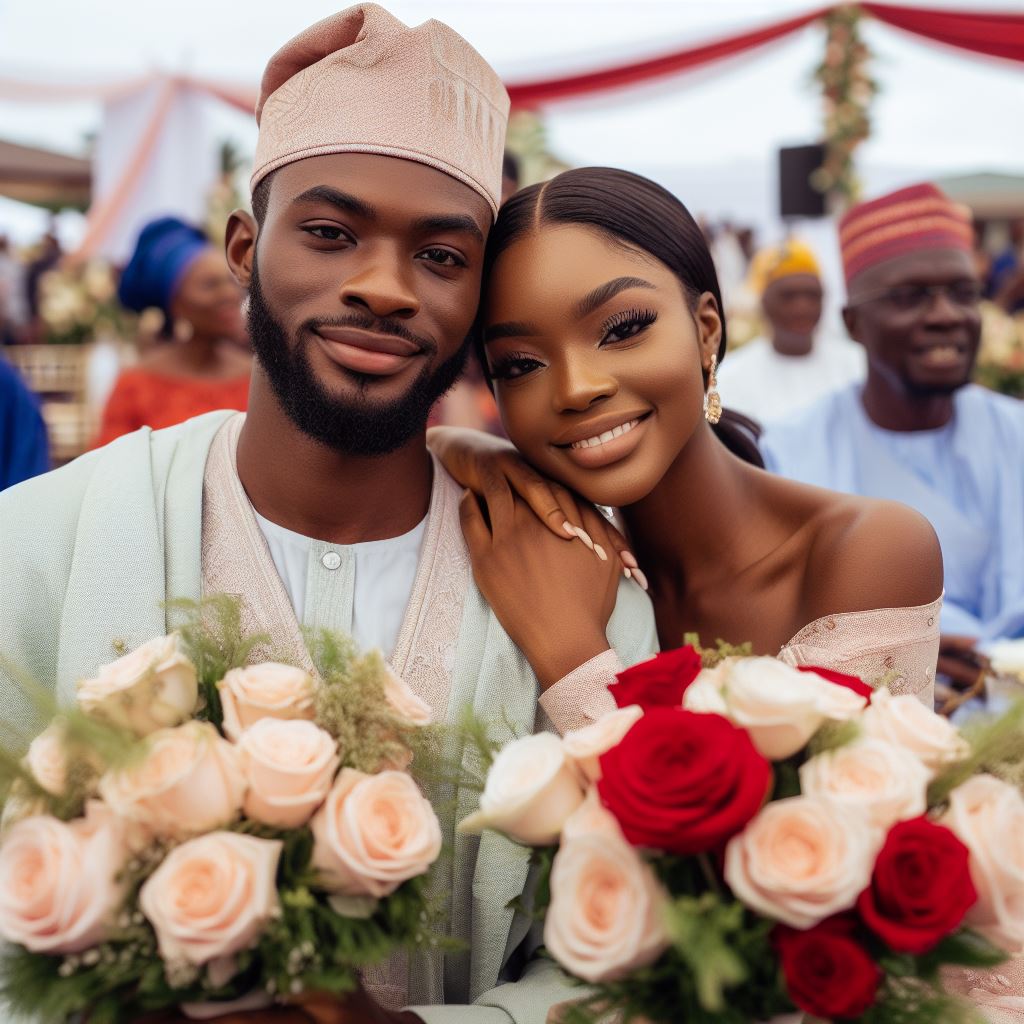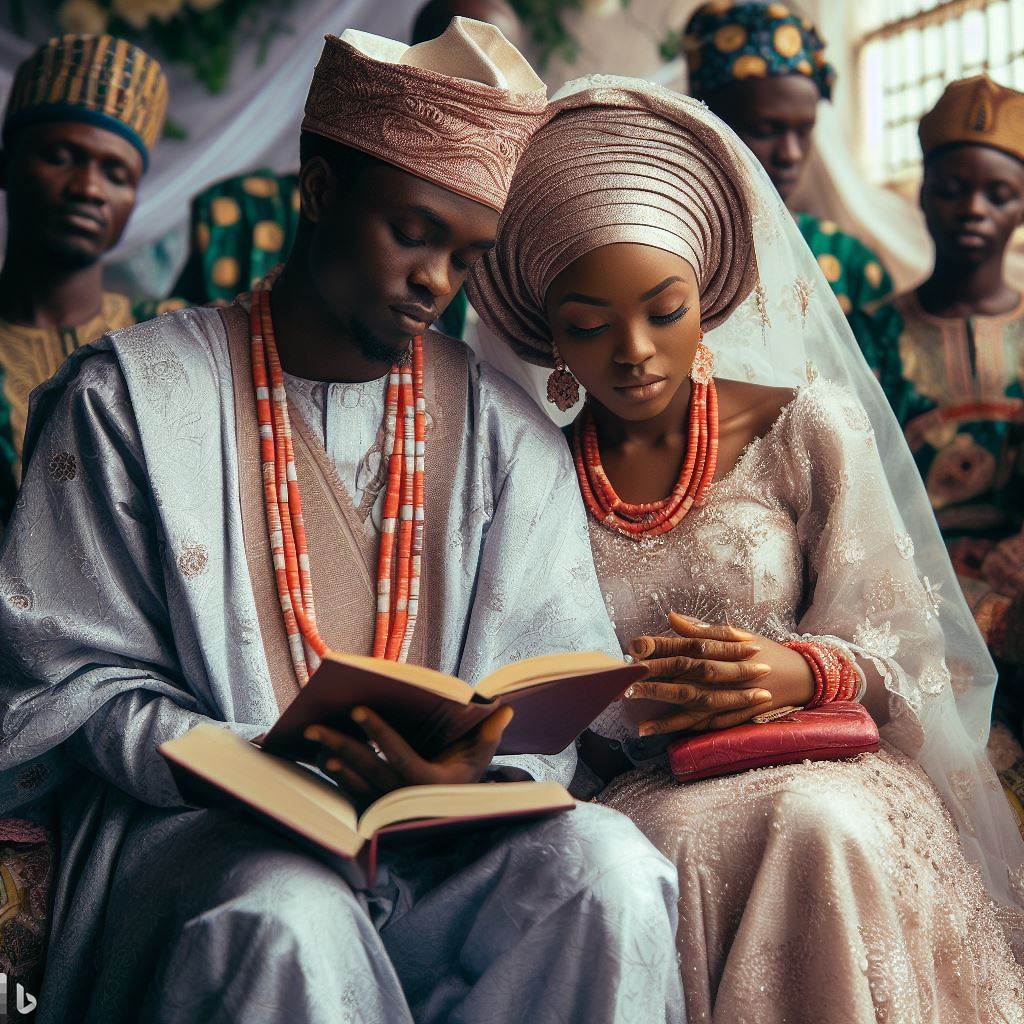Introduction
Brief Explanation of the Topic
In Nigeria, the clash between modern perspectives and cultural traditions is a pivotal societal challenge.
This clash raises intriguing questions about identity, progress, and heritage.
Importance of Understanding Tradition’s Weight
Understanding the depth of tradition is essential for bridging gaps between generations.
It sheds light on the rich tapestry of customs that shape Nigeria’s diverse communities.
Preview of Different Viewpoints
Modern Perspectives
- Embracing change and innovation.
- Advocating for gender equality.
- Promoting individualism and personal freedom.
Cultural Views
- Preserving ancestral practices and rituals.
- Upholding communal values and respect for elders.
- Safeguarding traditional roles and family structures.
Exploring these viewpoints illuminates the complexities of Nigeria’s evolving society, emphasizing the need for dialogue and understanding between tradition and modernity.
Traditional Cultural Views on Marriage
Overview of traditional Nigerian marriage customs
- Arranged marriages are common, with parents or elders selecting the spouse.
- Marriage is seen as a union between families rather than just individuals.
- Bride price (dowry) is usually paid by the groom’s family to the bride’s family.
- Traditional marriage ceremonies include rituals, dances, and performances.
- Extended family members and community leaders play significant roles in the marriage process.
Emphasis on the preservation of culture
- Traditional Nigerian marriage customs serve as a way to preserve cultural heritage.
- The rituals and traditions associated with marriage are seen as sacred and crucial.
- Marriage is viewed as a way to pass down cultural values and traditions to future generations.
- Preserving cultural identity through marriage helps maintain a sense of belonging and identity.
Role of family and community in decision-making
- Marriage decisions are not solely made by the individuals involved but also involve the families.
- Parents and elders have a significant say in choosing a suitable spouse for their children.
- Community opinion and approval are considered important in the decision-making process.
- Marriage is seen as a union between not just two individuals but also the entire community.
Pressure to conform to societal expectations
- Traditional cultural views on marriage create societal expectations and norms.
- Individuals are often expected to marry within their social and cultural groups.
- There is pressure to conform to specific gender roles and expectations within marriage.
- Deviation from traditional marriage customs can lead to judgment and criticism from society.
Basically, traditional cultural views on marriage in Nigeria place great emphasis on preserving cultural heritage, involving the role of family and community in decision-making, and conforming to societal expectations.
These customs serve as a means to pass down cultural values to future generations and maintain a sense of identity.
However, it is important to note that diversity exists within Nigerian society, and not all individuals adhere strictly to these traditions.
Modern perspectives on marriage may vary, but traditional customs continue to hold significant influence and significance in many communities.
Read: The Role of In-Laws: Setting Healthy Boundaries
Modern Perspectives on Marriage
Influence of Western values and globalization
- The spread of Western ideals has led to the influence of modern views on marriage.
- Globalization has facilitated intercultural interactions and exchange of ideas about relationships.
- Exposure to different cultures has challenged traditional beliefs and norms regarding marriage.
Shift towards individualism and personal choice
- Modern individuals value their independence and prioritize their own happiness.
- Marriage is seen as a personal choice rather than an obligation dictated by society.
- People seek partners who align with their own values, goals, and interests.
Desire for love and compatibility in marriage
- In modern marriages, love and emotional connection have become essential criteria.
- Individuals no longer solely rely on financial stability or social status when choosing a spouse.
- Compatibility in terms of values, communication, and shared interests is highly valued.
Factors contributing to the changing views
- Increased education and awareness have broadened perspectives on relationships.
- Women’s empowerment and gender equality movements have challenged traditional gender roles.
- Advancements in technology and communication have made it easier to connect with potential partners.
- Experiences of previous generations and their dissatisfaction with traditional marriages have influenced modern views.
Essentially, modern perspectives on marriage are greatly influenced by Western values, globalization, and the shift towards individualism.
The desire for love, compatibility, and personal fulfillment has become integral in choosing a life partner.
Various factors, such as education, women’s empowerment, technology, and intergenerational experiences, have contributed to these changing views.
As society continues to evolve, it is important to recognize and respect different perspectives on marriage, while embracing the diversity of choices and values that shape modern relationships.
Read: Crafting a Humorous Toast for a Nigerian Wedding

Conflict and Tension between Tradition and Modernity
Clash between traditional expectations and modern ideals
In today’s rapidly changing world, clashes between traditional expectations and modern ideals are inevitable.
Traditional expectations often involve conforming to societal norms and following established customs.
On the other hand, modern ideals emphasize individuality, freedom of choice, and breaking societal barriers.
This clash can lead to tension and conflict within individuals and communities, as they navigate between these two opposing forces.
Struggles faced by individuals who challenge cultural norms
Challenging cultural norms can be a daunting task, as individuals often face numerous struggles.
They may encounter resistance from family members, friends, and their entire community.
These individuals may be judged, ostracized, and even face threats due to their deviation from cultural expectations.
The pressure to conform can be overwhelming, making it difficult for them to pursue their own beliefs and desires.
Examples in popular culture and media
Popular culture and media often portray conflicts between tradition and modernity, offering insightful examples.
One such example is the film “Bend It Like Beckham,” where a young Indian girl challenges cultural traditions to pursue her passion for playing football.
In this movie, we see the tension between her traditional family’s expectations and her desire to break gender norms and pursue her dreams.
These examples help us understand the complexities and struggles faced by individuals in real life.
Societal consequences of ignoring tradition or rejecting modernity
The consequences of ignoring tradition or rejecting modernity can have far-reaching societal impacts.
Ignoring tradition can lead to a loss of cultural identity and erode the values and customs that define a community.
On the other hand, rejecting modernity can result in stagnation, inhibiting progress and limiting individual freedom.
It is essential to strike a balance between tradition and modernity, acknowledging and preserving the cultural heritage while embracing necessary societal changes.
This balance ensures the preservation of cultural diversity and allows for continuous growth and development.
Conflict and tension between tradition and modernity are ever-present in today’s society.
Individuals who challenge cultural norms often face numerous struggles and societal consequences.
However, it is crucial to find a balance that respects tradition while embracing necessary changes for progress.
By doing so, we can create a harmonious society that values both cultural heritage and individual freedom.
Read: Celebrating Love: Stories Behind Famous Nigerian Toasts
Finding a Balance: Navigating Tradition and Modernity
Importance of maintaining cultural heritage while embracing progress
Cultural heritage should be preserved as it provides a sense of identity and roots for individuals.
Embracing progress is important to adapt to changing times and meet the needs of society.
A balance between tradition and modernity can allow for a dynamic and inclusive society.
Strategies for resolving conflicts between tradition and modern values
Promoting dialogue and understanding can bridge the gap between tradition and modernity.
Seeking compromise and finding common ground can help resolve conflicts in a respectful manner.
Recognizing the value of both tradition and modernity can lead to a more harmonious coexistence.
Encouraging open conversations and discussions
Creating safe spaces for open conversations can foster understanding and acceptance of diverse views.
Listening to different perspectives without judgment can promote empathy and mutual respect.
Engaging in meaningful discussions can challenge preconceived notions and encourage personal growth.
Role of education and awareness in shaping views on marriage
Education plays a vital role in exposing individuals to different perspectives and challenging traditional norms.
Promoting awareness about the benefits of equality in marriage can lead to positive societal change.
Educating individuals about the importance of consent and individual agency can empower them in their choices.
Read: Blending Cultures: Marriage Toasts for Intertribal Weddings
Conclusion
Recap of key points discussed
In this post, we examined the weight of tradition in Nigeria and how it affects modern views.
We explored the clash between cultural and modern perspectives.
First, we discussed the importance of tradition in the Nigerian society.
We delved into how customs, beliefs, and values shape individual and collective identities.
Next, we explored the challenges faced by modern views that conflicted with traditional practices.
We analyzed the impact of globalization and Western influence.
Importance of understanding the weight of tradition in Nigeria
Understanding the weight of tradition is crucial for Nigerians to maintain their cultural heritage and preserve their identity.
It promotes a sense of belonging and solidarity.
Furthermore, comprehending the significance of tradition helps bridge the gap between generations.
It fosters mutual respect and encourages intergenerational dialogue.
Call to embrace cultural traditions while acknowledging the need for progress
It is essential to strike a balance between preserving cultural traditions and embracing progress.
We should respect our roots while adapting to the changing world.
By combining the wisdom of our ancestors with the advancements of modernity, we can create a harmonious society that respects both tradition and innovation.
Final thoughts and encouragement for further exploration of the topic
Exploring the weight of tradition in Nigeria provides a deeper understanding of our cultural heritage.
It opens doors to meaningful conversations and insights.
Let us continue to delve into this topic, engaging in dialogue and research.
By doing so, we contribute to the preservation and evolution of our rich Nigerian traditions.




